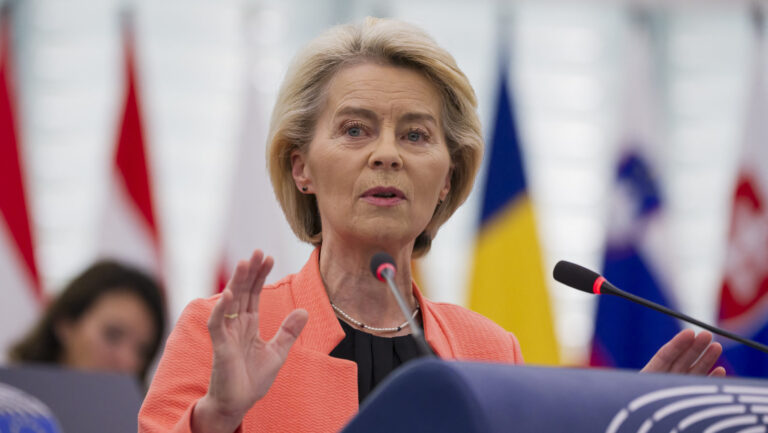At the beginning of November, the State of Israel is going to hold its fifth election in four years’ time. The unlikely coalition of the opponents of former prime minister Benjamin Netanyahu finally fell apart over the vote about renewing the extension of Israeli law to settlers residing in Judea and Samaria (often referenced as the West Bank). To many, it was quite surprising that a coalition of so many ideologically and politically differing parties could actually be kept together for a whole year since last year’s Knesset election. The dissolution of the Parliament prompted a new election this autumn, with an outcome that is hard to predict at the moment. Benjamin Netanyahu’s right-wing Likud Party will most likely win the most mandates, but it is still questionable whether the natural allies of Likud will perform well enough to allow the right to form a majority in the Knesset. Netanyahu’s potential return still highly divides the Israeli electorate. In this article we look at what happened in Israeli politics in the last year, and what Netanyahu’s return would mean for the Jewish State and for the world.
An Unlikely Coalition
Coalitions are not a rare occurrence in Israeli politics. As a matter of fact, no single party has ever been able to form a majority on its own in Israel’s Parliament, the Knesset. Still, the formation of the coalition of anti-Netanyahu forces following last year’s parliamentary election came as a huge surprise for many. The eight-party coalition included the usual left-wing opponents of Netanyahu’s, but fresh right-wing formations, a religious Zionist party and, as a most unlikely development, the fundamentalist Islamist Ra’am also joined the never-Netanyahu camp. In exchange for joining the coalition of the many, the religious Zionist Yamina Party’s leader, Naftali Bennett, asked for nothing less but the premiership in the first two years of the expected lifetime of the coalition government. That is how a party that won seven parliamentary seats in the 2021 election actually gave the prime minister. The originally right-wing Yamina, closely aligned with the settler movement in Judea and Samaria, quickly became treasonous in the eyes of many on the Israeli right.
Despite its political and ideological diversity and the constant pressure from a united opposition, led by former PM Netanyahu, the Bennett-Lapid coalition managed to pass Israel’s first budget in more than two years. Still, serious differences came to the surface as left-wing parties and Ra’am abstained on many crucial pieces of legislation proposed by the government. Serious blows also came from the right. Amichai Chikli of Yamina, an outspoken critic of the government, never joined the coalition. Idit Silman of Yamina left the Bennett-camp in April, citing an undesired shift to the left, therefore depriving the coalition of its fragile majority. The final nail in the coffin came in June, when the Knesset failed to pass crucial legislation renewing the extension of Israeli law to settlers in Judea and Samaria. Without the passage of the law, Jewish settlers would have become subject to Israeli military law that otherwise applies in the volatile region of the West Bank. As Parliament came to a dissolution, the settler law got extended automatically, but it also led to the fall of the Bennett-Lapid government and could ultimately lead to Benjamin Netanyahu’s return to power.
The Great Comeback
The coalition government was quite keen on passing legislation that could have made it impossible for the scandal-hit, but still widely popular ex-prime minister to return. Their initiatives ultimately failed. Benjamin Netanyahu not only solidified his position as the leader of a united opposition, but he also managed to fight off attacks from within his own party. Up until now, Likud was likely to gain five to six more seats compared to last year’s election. Then the formation of a religious Zionist alliance between the Religious Zionist Party and Otzma Yehudit became a reality. Both parties are often characterised as far-right and highly nationalist. They are definitely more radical and extreme than Netanyahu’s national-liberal Likud Party. Still, the religious Zionist camp is a natural ally and a likely coalition partner for Likud. Netanyahu even supported the two parties running on a joint list in order to maximise the number of right-wing mandates in the Knesset.
Benjamin Netanyahu not only solidified his position as the leader of a united opposition, but he also managed to fight off attacks from within his own party
Although the victory of the right in this year’s election is far from certain, it is hard to imagine a scenario in which Netanyahu does not become prime minister again should Likud and its allies form a majority government in November. With his fifteen years in power, Netanyahu is already the longest serving Prime Minister Israel has ever had. His time as finance minister and later as head of government have shaped Israel to a great extent, even on a historical scale.
For The Record
Finance minister Netanyahu’s tenure was characterised by an agenda of liberalisation, privatisation and free-market reforms. The top rate of income tax was lowered, several companies (including the national airline El Al) and other state assets were privatised, exchange laws were liberalised, and public spending was substantially cut. The enacted reforms culminated in sustainable and dynamic economic growth. Later on, under Netanyahu’s 12-year tenure as prime minister, real GDP grew by an average annual rate of 3,8 per cent (which is in fact quite high for an advanced economy). In this period, Israel overtook nine countries with regard to per capita GDP based on purchasing power parity.
Economic growth was accompanied by low inflation, a substantial reduction in the unemployment rate, decreasing government debt and decreasing external debt (as a percentage of GDP). Income inequality (measured by the GINI Index) also fell four percentage points, an annoying figure from the perspective of Netanyahu’s left-wing opponents. Under Netanyahu, Israel increased its gas production multifold, which proved to be an enormously lucrative asset during this year’s energy crisis. It is no exaggeration to say that Netanyahu’s 12-year premiership was an economic success story.
Besides the economic results, Netanyahu’s tenure was relatively peaceful with regard to the Arab-Israeli conflict
Besides the economic results, Netanyahu’s tenure was relatively peaceful with regard to the Arab-Israeli conflict. Excluding the 2014 Gaza War, the number of annual Israeli and Palestinian(!) casualties fell to record lows in the past decade. The 2020 Abraham Accords were an agreement of historic significance and an important step towards a realignment in Israeli foreign policy. Thanks to successful lobbying and the cooperation of the Trump administration, the United States moved its embassy to Jerusalem and recognised Israeli sovereignty over the Golan Heights, both important developments for the Jewish State.
Netanyahu’s greatest foreign policy achievement was definitely standing up against the 2015 Iran Nuclear Deal. His stalwart opposition ultimately lead to the collapse of the deal when Donald Trump decided to abandon the agreement that would have provided Iran with the necessary economic means to develop nuclear weapons. As negotiations about renewing the agreement were resumed after Joe Biden took office, Netanyahu’s potential return would definitely serve as a blow to Iran’s nuclear ambitions. Preventing nuclear proliferation in the Middle East is of paramount importance with regard to Israel’s and its allies’ security. Netanyahu proved to be an efficient opponent of such an occurrence, and he would certainly continue his fight in the coming years.
High Stakes
Netanyahu’s premiership record offers us great hints about what could be expected from his return. Low taxes, deregulation, innovation, energy production and a disciplined fiscal policy all contributed to an Israel that is definitely more robust economically than at the beginning of Netanyahu’s tenure. A realpolitik in the foreign policy field, combined with effective lobbying in the United States, and the historic opportunities offered by the Abraham Accords all contribute to a widening leeway for Israel in the arena of regional and global politics. By all means, Israel is ready to face the biggest existential threat for decades, the nuclear ambitions of a country that vowed to destroy the Jewish homeland.
The worst outcome of this year’s election would be an uncertain result, that would ultimately lead to chaotic coalition talks, unstable political formations and the focus shifting from essential policy issues to the never-ending calamity of party politics. Although Israel is stronger than ever, the permanent existential threat the Jewish State has had to endure is still present. The stakes are particularly high, both for Israel and its allies in the Middle East and in the wider Western alliance. Benjamin Netanyahu offers known solutions to current problems, answers that proved to be right in the past thirteen years. This November might well be the month of the return of Israel’s longest serving prime minister. Given his political talents, we can expect him to be around for a long time to come.








